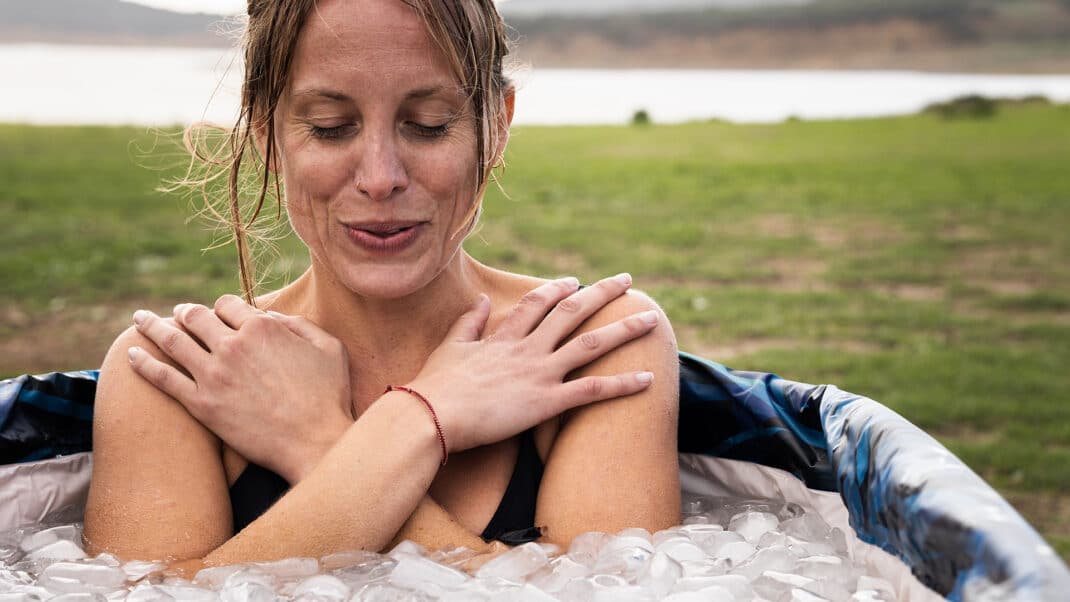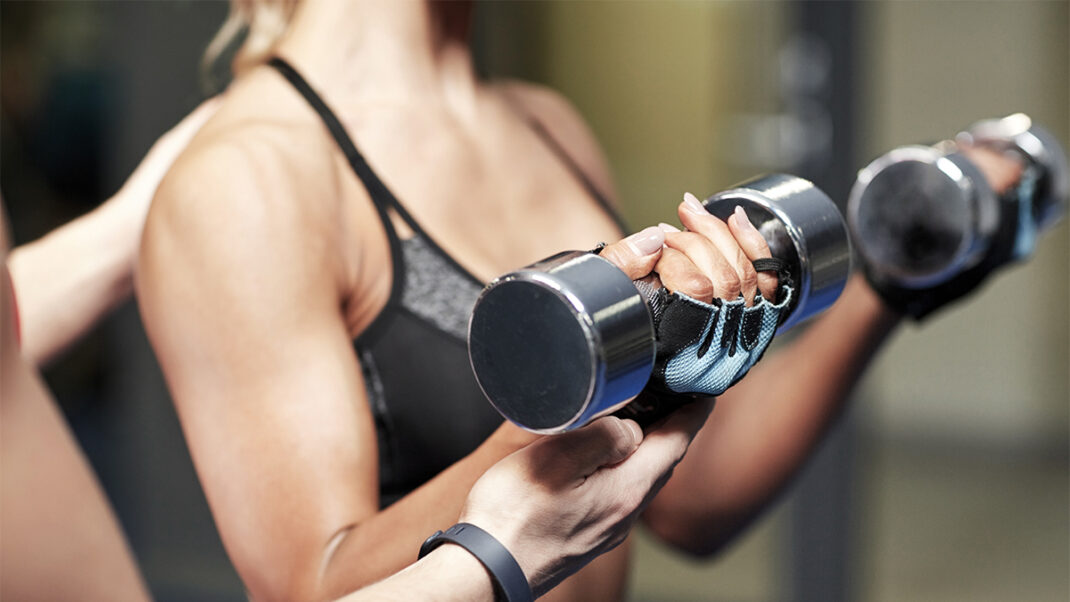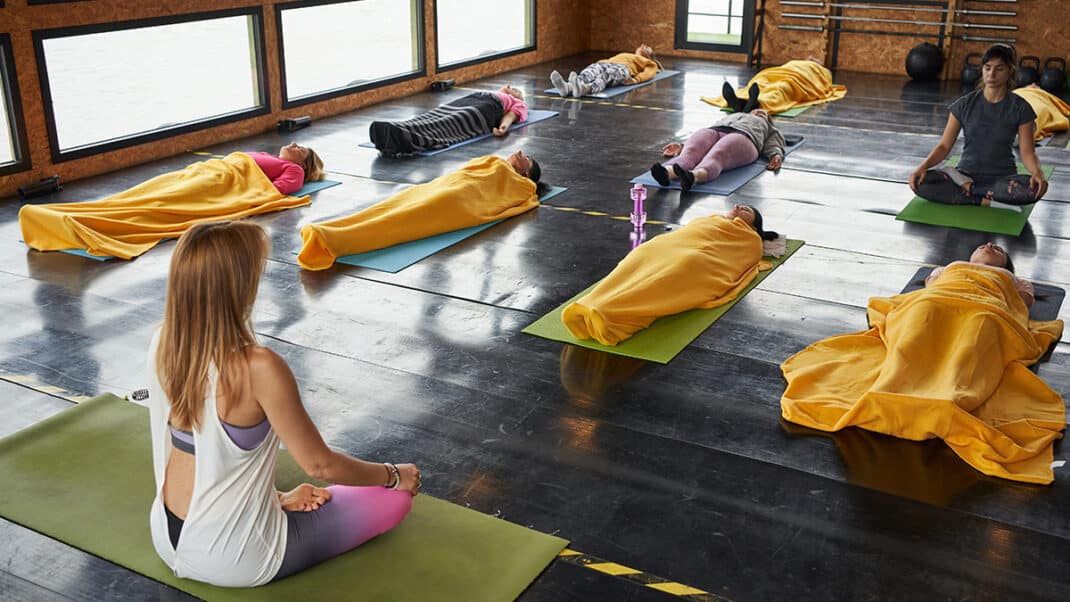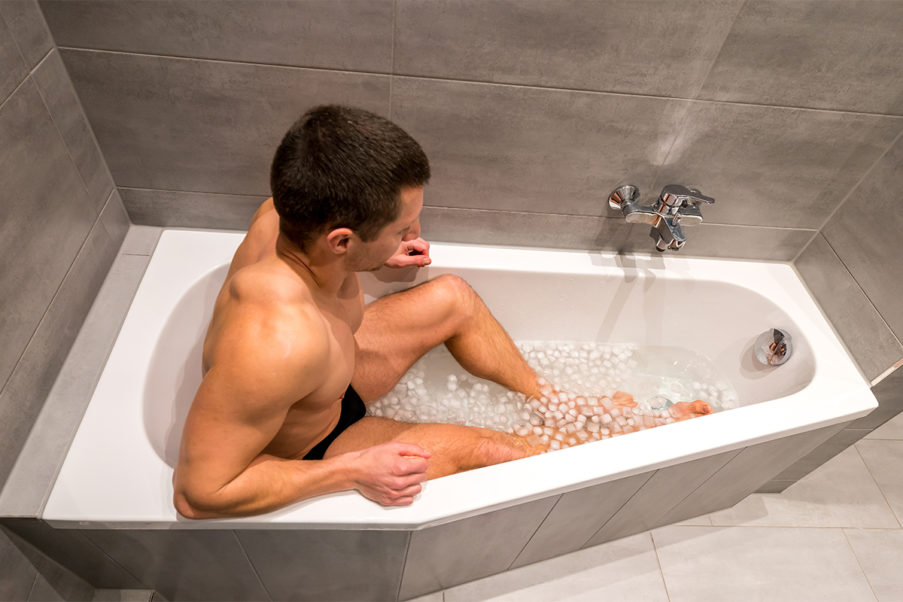Cold-Water Immersion: Helpful or Harmful?
New review study shows evidence-based benefits of a cold-water dip.

From swimming in cold rivers and lakes to ice baths after sports, enthusiasts swear by the physical and mental health benefits of cold-water immersion. Cold water immersion in baths, showers or cold plunges up to chest level in water temperatures of less than or equal to 15 degrees Celsius (59 degrees Fahrenheit) for a minimum of 30 seconds may improve sleep quality, lower stress and boost life quality, according to research published in PLOS ONE.
University of South Australia researchers reviewed 11 studies with 3,177 total participants. “In this study, we noted a range of time-dependent results,” says lead study author Tara Cain, research assistant, University of South Australia [UniSA] Allied Health and Human Performance, Adelaide, South Australia. “First, we found that cold-water immersion could reduce stress levels, but for only about 12 hours post exposure. We also noted that participants who took 20, 60 or 90 second cold showers reported slightly higher quality of life scores. But again, after three months these effects had faded.”
“We also found some links to cold-water immersion and better sleep outcomes, but the data was restricted to males and, while there have been many claims that cold-water immersion experiences can boost immunity and mood, we found very little evidence to support these claims.” Other evidence showed an immediate increase in inflammation; one researcher noted this may be detrimental for people with pre-existing conditions.
“The immediate spike in inflammation is the body’s reaction to the cold as a stressor. It helps the body adapt and recover and is similar to how exercise causes muscle damage before making muscles stronger, which is why athletes use it despite the short-term increase [in inflammation], says co-study author Ben Singh, PhD, research fellow UniSA Allied Health and Human Performance.
More high-quality research is recommended including males and females, that measures a dose-response relationship and evaluates who benefits most and what is the ideal approach.
References
https://journals.plos.org/plosone/article?id=10.1371/journal.pone.0317615
https://people.unisa.edu.au/Tara.Cain
https://www.cuemath.com/questions/what-is-15-degrees-celsius-in-fahrenheit/
https://www.unisa.edu.au/media-centre/Releases/2025/the-big-chill-is-cold-water-immersion-good-for-our-health/
Shirley Eichenberger-Archer, JD, MA
Shirley Eichenberger-Archer, JD, MA, is an internationally acknowledged integrative health and mindfulness specialist, best-selling author of 16 fitness and wellness books translated into multiple languages and sold worldwide, award-winning health journalist, contributing editor to Fitness Journal, media spokesperson, and IDEA's 2008 Fitness Instructor of the Year. She's a 25-year industry veteran and former health and fitness educator at the Stanford Prevention Research Center, who has served on multiple industry committees and co-authored trade books and manuals for ACE, ACSM and YMCA of the USA. She has appeared on TV worldwide and was a featured trainer on America's Next Top Model.






